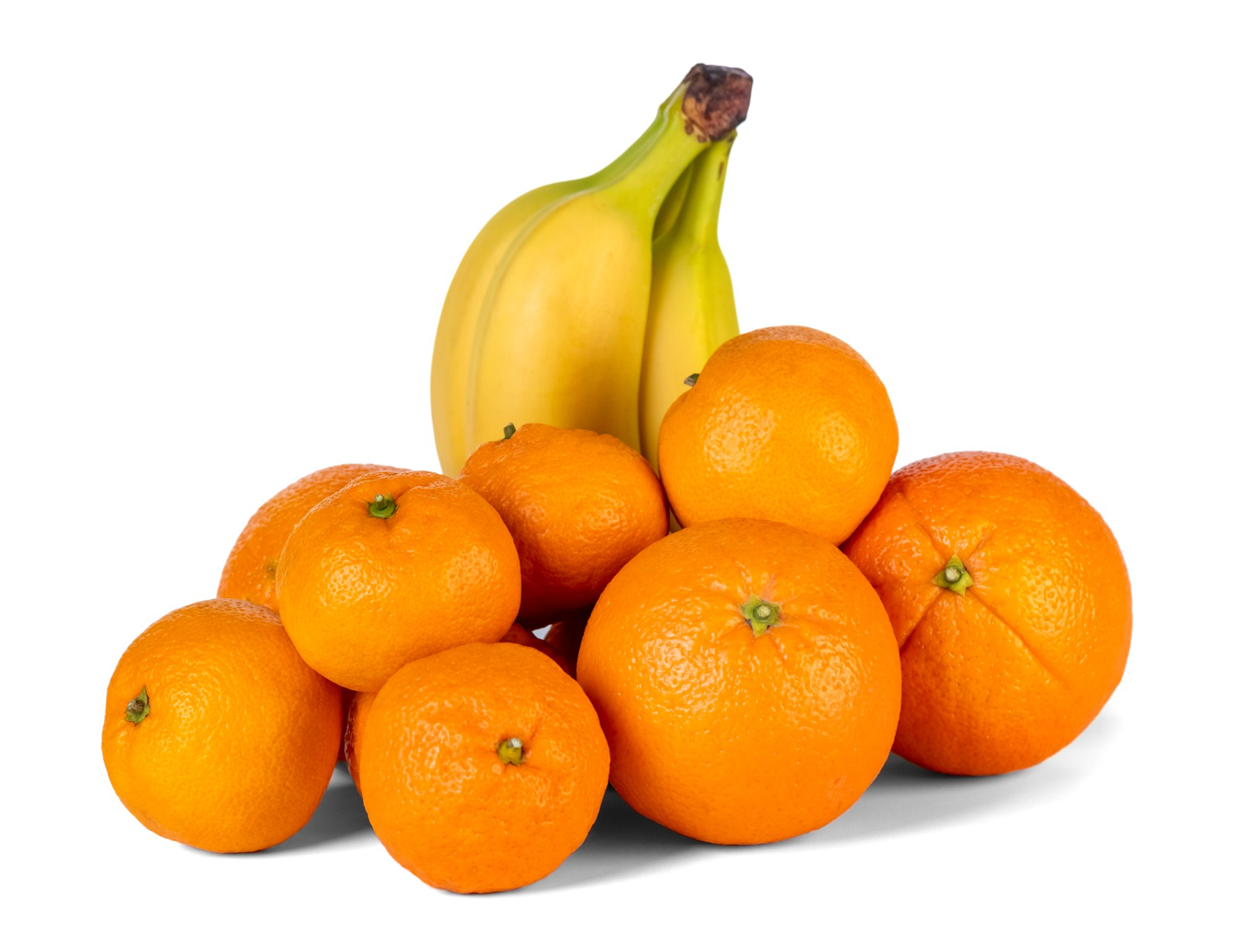Fruits are nature’s gift in providing ready-make meals packed with vitamins, minerals, fibers, and other nutrients to support your health regimen. These foods also have a low-calorie count with a high amount of fiber—which is essentially beneficial for people that need to strip their extra body fat. Eating fruits is also linked with reducing the risk of life-threatening diseases like high blood pressure, diabetes, cancer, and heart diseases.
There are tons of fruits available in the local market and grocery stores. Still, the two most common fruits are bananas and oranges. These two fruits are known to provide an immense amount of soluble and insoluble fibers. These two fiber variants are essential to strip away your body fats while reducing the production of excess oils and food to your digestive tract.
Which Is Healthier Banana or Orange?
Bananas and oranges are both nutritious fruits. While these two fruits have similarities, taking a look at their components will give a clearer insight into consuming them. Still, eating bananas and oranges must be done since they are both a healthy and nutritious treat. They are both considered tropical fruits but with distinguishable differences in categories.
What is a Banana?
Ripe bananas can be enjoyed as it is or can be mixed on several grains and fruits to add more nutrients and flavor. While some are avoiding bananas due to its high sugar and calorie content, it is still considered a nutrient-dense fruit. Bananas are enriched with potassium, magnesium, and manganese.
Potassium is an essential element to reduce sore muscles and tissues after a tiring workout. A banana can contain 451 milligrams of potassium, whether it is ripe or unripe. Consuming green bananas is ideal for people with diabetes to manage their blood sugar and improve their gut health.
On the other hand, magnesium and manganese work together to help the body reduce blood pressure and heart disease. A piece of banana provides 9 percent of the daily intake of potassium or 37 milligrams on each serving. It is also combined with other nutrients like vitamins C and B6 that are essential to reduce soring.
What is an Orange?
Oranges belong to the citrus fruit family, which is low in calories and packed with high vitamin C and fiber. It can also satiate your hunger better than croissant and muesli bar. Orange can be two times more filling than a muesli bar and four times more filling than a croissant.
Eating whole fruit rather than its juice form can reduce your calorie intake and make you feel full for longer hours. Oranges can also hold up to 80 percent of water, rehydrating you after a long workout. It can also provide 197 KJ or energy per 100 grams of serving.
Oranges can also give more calcium than bananas. This citrus fruit also has a lower glycemic index, which can provide how slow or fast a particular food can increase one’s blood glucose levels.
Do Oranges Help You Lose Belly Fat?
Oranges can help you lose your excess belly fat. These fruits are generally low in calories and can give you essential nutrients, fibers, and vitamins that can help you reduce weight. Oranges are very filling and can provide you the same benefits provides by grapefruit and lemons. The vitamin C found in oranges can also give you healthier skin and lower the risk of infection.
Reduce the psychological effect of diet change with this tasty fruit. The sweet-tart flavor of oranges is palatable and can provide you a healthier snack than sugars that can give you extra flabs. Oranges also contain enzymes that can boost your body’s metabolism—which is linked to improved weight loss.
If you want to eat an orange before a workout, you might check how many you are consuming. While the sugars found on oranges are not linked with body fat, they should still be eaten in moderation. This citrus fruit is high in sugars that can fluctuate your blood sugar levels. This citrus fruit is high in sugars that can fluctuate your blood sugar levels.
Oranges can be eaten raw or they can be juiced. It can also complement other dishes like shakes, smoothies, salads, and marmalades. If you want to retain the orange’s natural fiber, eating it raw is better rather than juicing it. Juicing your oranges will separate the fruit’s actual fiber—thus reducing its beneficial properties.
Is Banana Good for Weight Loss?
Like oranges, bananas can be considered a nutritious addition to your daily diet. This yellow fruit provides vital micronutrients and fiber that can aid your digestion. Improved digestion is essential to enhance your body’s metabolism, thus enhancing the release of your excess body fats.
Bananas are suggested for people who incorporate workouts into their diet routine since they can treat sore muscles and provide carbohydrates for your muscles to regain their glycogen. Eating bananas can also reduce bloating, replaced lost sugars, and satiate a person’s hunger. These components are essential to maintain your body’s digestive tract in a good place.
While bananas provide an increased number of sugars, it is considered under the fruits with high fiber content. A single banana can provide 3.07 grams of fiber. Incorporating this fruit into other grains can provide the daily fiber needed for your body. People consuming high fiber know to reduce their body weight, reduce excessive cholesterol, and stabilize sugar levels.
Fiber serves as the body’s broomstick since it sweeps away excess fat, sugars, and lipids on your digestive tract. The body does not digest insoluble fiber, but it can carry leftover food to your stomach, released when you excrete. Excretion is essential to reduce excess weight on your stomach. It will also prevent conditions that can affect your body’s digestion.

